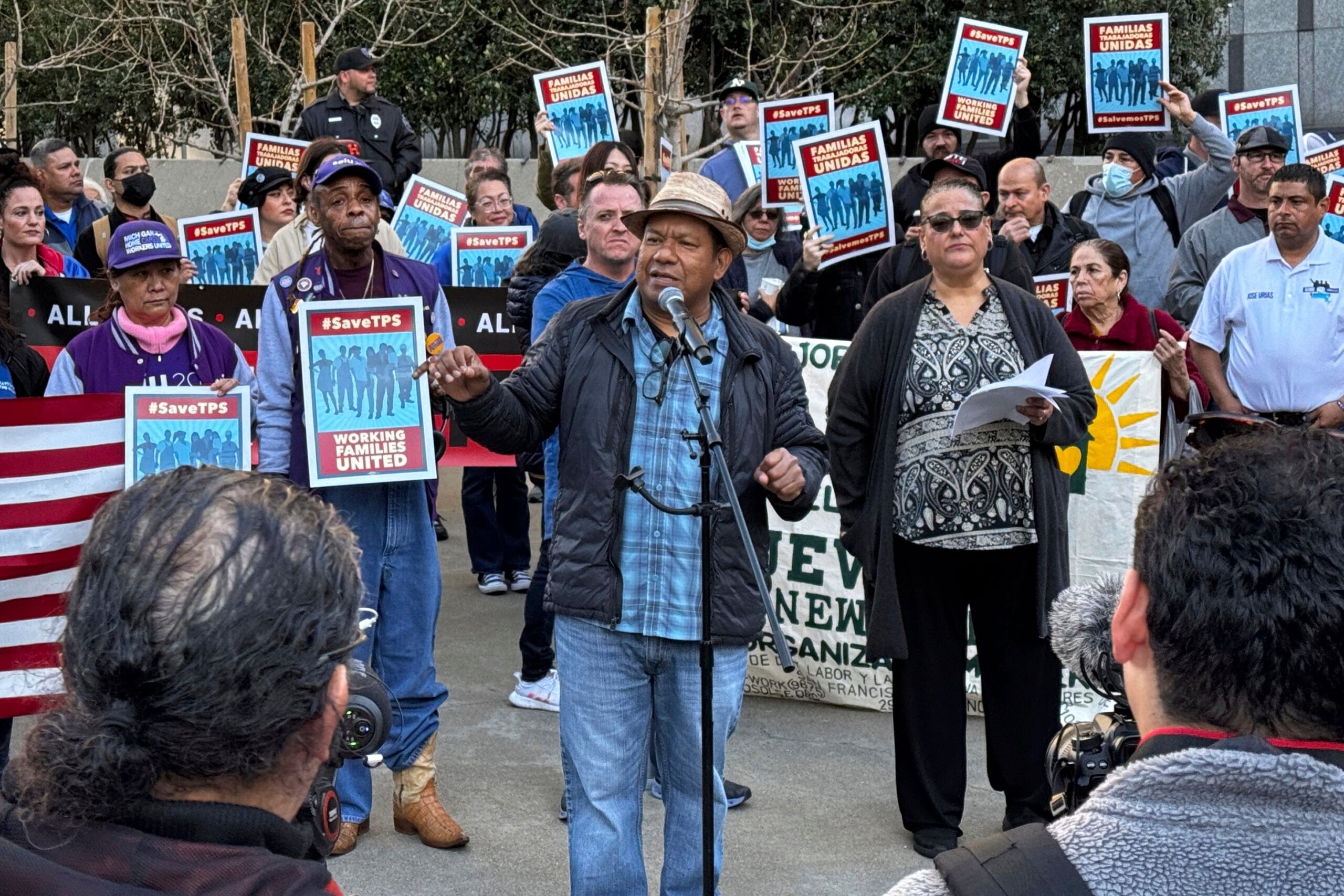A federal appeals court has blocked the Trump administration from revoking humanitarian protections for more than 600,000 Venezuelans who were allowed to legally live and work in the United States, setting up another Supreme Court battle over the president’s mass deportation agenda.
To carry out plans to remove millions of people from the country, the administration has pushed to “de-legalize” tens of thousands of immigrants by revoking Temporary Protected Status designations for several countries.
A series of court rulings paved the way for Homeland Security Secretary Kristi Noem to begin stripping those protections for roughly 1 million people, who could become easy targets for arrest and removal without them.
On Friday, a three-judge appellate court panel in California upheld a lower-court ruling that keeps those protections in place for targeted Venezuelans while the legal challenges continue.
The TPS system was designed to be “predictable, dependable, and insulated from electoral politics,” the court wrote.

“Here, hundreds of thousands of people have been stripped of status and plunged into uncertainty,” according to the judges.
“The stability of TPS has been replaced by fears of family separation, detention, and deportation,” they added. “Congress did not contemplate this, and the ongoing irreparable harm … warrants a remedy pending a final adjudication on the merit.”
In a statement to The Independent, a DHS spokesperson blasted “activist judges” and said TPS has been “abused, exploited, and politicized as a de facto amnesty program.”
“While this injunction delays justice and undermines the integrity of our immigration system, Secretary Noem will use every legal option at the department’s disposal to end this chaos and prioritize the safety of Americans,” the spokesperson added.
In March, District Judge Edward Chen stopped the administration from blocking TPS for Venezuelans, which was set to expire in April. His decision was later reversed by the Supreme Court without explanation after the government’s emergency appeal.
Losing those protections would “inflict irreparable harm on hundreds of thousands of persons whose lives, families, and livelihoods will be severely disrupted, cost the United States billions in economic activity, and injure public health and safety in communities throughout the United States,” Chen wrote at the time.
Noem’s decision-making “smacks of racism” and is likely “motivated by unconstitutional animus,” according to Chen.
It is unclear what effect Friday’s decision will have for the estimated 350,000 Venezuelans whose protections expired in April. Protections for another group of 250,000 Venezuelans are set to expire next month. Friday’s ruling will also block that expiration date.
Congress created the TPS program in 1990 to provide temporary immigration protections for people fleeing war, natural disasters and “extraordinary and temporary” conditions in their home countries. Beneficiaries are allowed to apply for renewable work permits and protections against deportation.
In her decision revoking TPS, Noem argued that conditions had improved in those countries and that it was no longer in the interest of the U.S. to allow immigrants.
Meanwhile, the Trump administration is escalating its military presence in Venezuela with multiple warships, a nuclear-powered submarine, and 4,500 troops in one of the biggest showdowns between the countries in years.
The Trump administration is seeking the arrest of Venezuelan President Nicolas Maduro, who was labeled “one of the largest narco-traffickers in the world” by U.S. Attorney General Pam Bondi.
